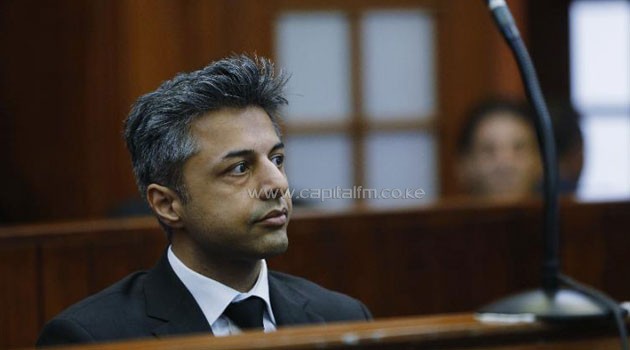
Prosecutors say Dewani, 34, hired hitmen to kill his 28-year-old Swedish bride Anni in a staged hijacking because he is a gay man who felt trapped into marriage by family pressures/AFP-File
Dewani’s lawyers applied for his discharge at the end of the state’s case, arguing that the evidence against him was so weak he should be acquitted without even having to mount a defence.
But the dead woman’s family has urged Western Cape High Court Judge Jeannette Traverso to force Dewani to testify.
“Don’t let Shrien Dewani walk away without giving us, South Africa and people from all over the world the full story,” Anni Dewani’s brother Anish Hindocha told a news conference last week.
Prosecutors say Dewani, 34, hired hitmen to kill his 28-year-old Swedish bride Anni in a staged hijacking because he is a gay man who felt trapped into marriage by family pressures.
Dewani says he is bisexual and loved Anni.
Both families – the Dewanis and the Hindochas – are of Indian origin, and have sat on opposite sides of the courtroom throughout weeks of sensational testimony.
The driver of the hijacked taxi and one of the hijackers – both serving long jail terms for the murder – testified that Dewani hired them for 15,000 rand ($1,300) to kill his wife.
Dewani’s lawyer, Francois van Zyl, argued that their evidence was full of contradictions and “cannot safely be relied upon”.
According to South Africa’s Criminal Procedure Act, an accused can be declared not guilty at the close of the prosecution’s case if the court feels there is insufficient evidence to show he or she committed the crime.
Dewani returned to Britain within days of the murder in November 2010 and fought a three-year legal battle to avoid being extradited to South Africa, claiming he had mental health problems, including depression and post-traumatic stress.
But he was sent back to South Africa in April, where he was found fit to stand trial, and is being held at Cape Town’s Valkenberg psychiatric hospital for the duration of the court hearing.
If the judge drops the charges, he would be free to return to Britain immediately.









































